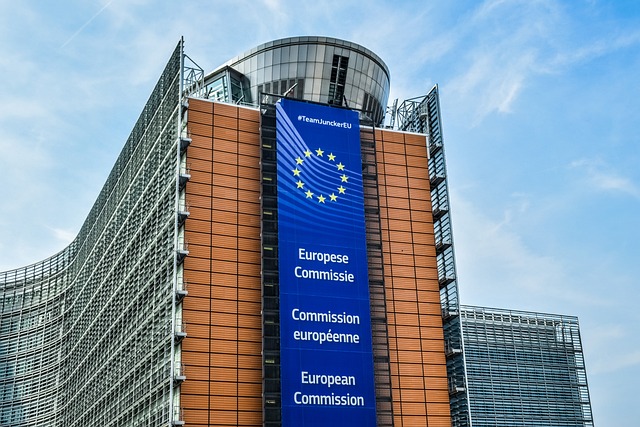Cannabis
The European Commission Has Registered the “European Cannabis Initiative”
The European Cannabis Initiative highlights the importance of a human rights-focused approach to drug policy, proposing a move away from repressive control methods. It points to the need to re-evaluate current strategies that have not brought the expected results in reducing the demand and supply of drugs, as well as the need to focus on harm reduction and protection of public health.

European Union (EU) officials have approved the possibility for activists to start collecting signatures for an international initiative (the European Cannabis Initiative) that would aim to facilitate access to medical cannabis and promote research on the therapeutic potential of cannabis.
The European Commission announced on Tuesday, February 6th, 2023, that it has agreed to partially register the initiative, meaning supporters will have six months to launch a signature collection campaign and then another year to collect one million signatures from at least seven member states to force consideration of the proposal. The European Citizens’ Initiative was introduced with the Lisbon Treaty as a mechanism through which citizens can shape European policy.
Read more about the European Cannabis Initiative and find the latest financial news of the day with the Hemp.im mobile app.
The organizers of the European Cannabis Initiative call on the European Commission to:
Convening the Trans-European Citizens’ Assembly on cannabis policy in a broader perspective: a common scale of sanctions across the EU; coherence of the policies of the Member States; EU citizens the opportunity to discuss this sensitive topic among themselves and with the institutions.
Supporting access to medical cannabis based on scientific evidence and patient experience, and enabling patients to transport cannabis and any cannabis derivatives prescribed for therapeutic purposes across the EU to ensure the full enjoyment of the right to health.
Allocate necessary resources to cannabis research – including in herbal and traditional medicine – for its therapeutic applications and make it available internationally.
Activists behind the European Cannabis Initiative presented three goals they wanted the commission to pursue, but the body said it could only register the second and third goals.
The European Commission is committed to supporting access to cannabis for medicinal purposes and ensuring the possibility of transporting these substances for therapeutic purposes in order to guarantee the full right to health. It was also called upon to allocate the necessary funds for research into cannabis for its medicinal uses.
Despite this, the committee admitted that it could not register an initiative to organize a pan-European citizens’ assembly to discuss cannabis policy, pointing out that this exceeded its mandate.
Initially, the proposed version of the European Cannabis Initiative was more extensive, but after the initial assessment and opinion of the committee, the goals were consolidated. If the required number of signatures are collected, the committee will have to decide whether or not to take further action, justifying its decision.
“ Council Framework Decision 2004/757/JHA established minimum rules on the components of criminal offenses and penalties for illicit drug trafficking; which, after 20 years, is no longer in line with the latest developments in drug control and does not reflect the latest international and national recommendations,” says the European Commission.

In addition, the 2023 report of the UN High Commissioner for Human Rights recommends, among other things:
Adopting alternatives to criminalization, zero tolerance and drug eradication by considering decriminalization of use taking control of illicit drug markets through responsible regulation to eliminate profits from illicit trade, crime and violence
This initiative, known as the ” European Cannabis Initiative “, highlights the EU’s evolution towards a common position on innovative approaches to drug policy based on human rights. Draws attention to the progress made by some Member States in legalizing marijuana and emphasizes the need to rethink current anti-drug strategies in Europe, which have proven ineffective.
Amid a global debate on drug policy, this initiative is part of a broader movement to change attitudes towards cannabis and other substances. Last year, a group of UN experts called for an end to the global war on drugs , and a separate drug policy commission of top world leaders advocated the legalization and regulation of access to substances previously considered illegal.
The European Union’s steps to explore the therapeutic potential of cannabis and facilitate access to it for medical purposes may represent a breakthrough in the treatment and perception of psychoactive substances on the continent. Such a change may not only contribute to the development of new methods of treating many diseases, but also bring significant changes in legal and social policy regarding drugs.
At the same time, the German coalition government, by announcing the finalization of the law legalizing cannabis, signals a potential change in approach among EU member states. Such a step, alongside initiatives in other countries such as Luxembourg or Malta , may contribute to the development of a new, more uniform cannabis policy throughout the EU.
The European Cannabis Initiative highlights the importance of a human rights-focused approach to drug policy, proposing a move away from repressive control methods. It points to the need to re-evaluate current strategies that have not brought the expected results in reducing the demand and supply of drugs, as well as the need to focus on harm reduction and protection of public health.
__
(Featured image by GRAS GRUN via Unsplash)
DISCLAIMER: This article was written by a third party contributor and does not reflect the opinion of Born2Invest, its management, staff or its associates. Please review our disclaimer for more information.
This article may include forward-looking statements. These forward-looking statements generally are identified by the words “believe,” “project,” “estimate,” “become,” “plan,” “will,” and similar expressions. These forward-looking statements involve known and unknown risks as well as uncertainties, including those discussed in the following cautionary statements and elsewhere in this article and on this site. Although the Company may believe that its expectations are based on reasonable assumptions, the actual results that the Company may achieve may differ materially from any forward-looking statements, which reflect the opinions of the management of the Company only as of the date hereof. Additionally, please make sure to read these important disclosures.
First published in Fakty Konopne. A third-party contributor translated and adapted the article from the original. In case of discrepancy, the original will prevail.
Although we made reasonable efforts to provide accurate translations, some parts may be incorrect. Born2Invest assumes no responsibility for errors, omissions or ambiguities in the translations provided on this website. Any person or entity relying on translated content does so at their own risk. Born2Invest is not responsible for losses caused by such reliance on the accuracy or reliability of translated information. If you wish to report an error or inaccuracy in the translation, we encourage you to contact us

-

 Biotech1 week ago
Biotech1 week agoWhy Bioceres Shares Slide Into Penny Stock Territory
-

 Biotech2 weeks ago
Biotech2 weeks agoCIPM Expands Drug Funding and Indications
-

 Africa3 days ago
Africa3 days agoAgadir Allocates Budget Surplus to Urban Development and Municipal Projects
-

 Cannabis1 week ago
Cannabis1 week agoKONOPEX Expo 2026: Celebrating Europe’s New Era of Legal Cannabis

























